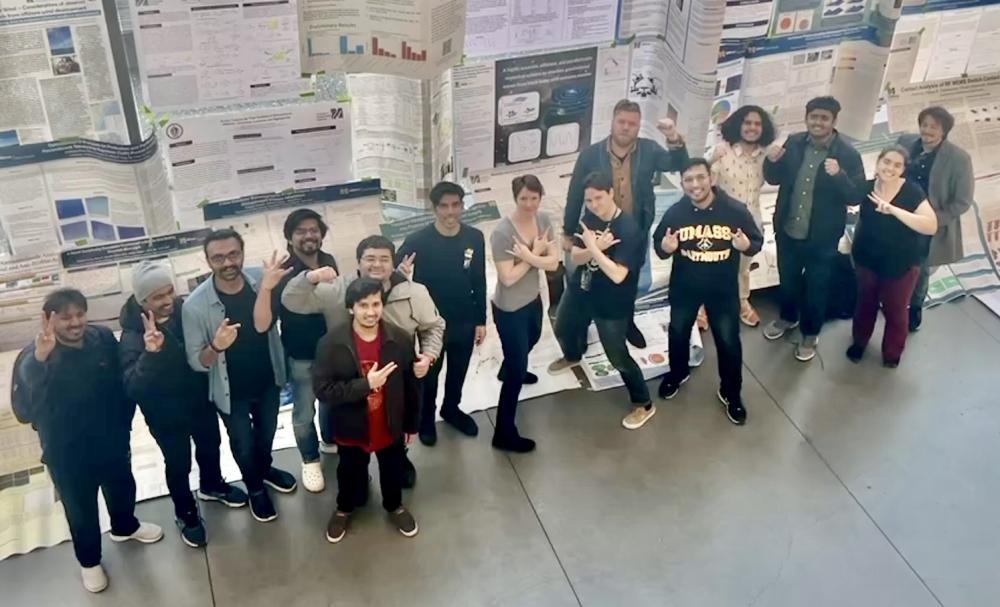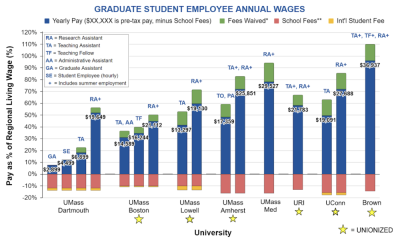UMass Dartmouth grad-student employees form union
UMass Dartmouth graduate student employees let out cheers of joy on Thursday, April 27 after they voted to officially become a labor union after months of effort.
Of the 122 certified votes received at the on-campus election only three were against unionizing, said AJ Vincelli, a seventh-year PhD student in Protein Engineering who is among those leading the unionization drive.
That high favorability for a union “speaks very loudly of how horribly mistreated our graduate students have been,” said Vincelli.
UMass Dartmouth could not be reached for comment.
The students will join the American Federation of Teachers Massachusetts (AFT MA) union. Prior to this vote, UMass Dartmouth was the only UMass campus other than the medical school that did not have a union for grad-student employees and had among the lowest compensation rates of the four main campuses, organizers said.
Graduate student employees — who can hold a variety of titles, such as teaching assistant/fellow, research assistant, graduate assistant, or administrative assistant — are postgraduate students who work for the university while completing their degrees.
These student employees are compensated for their work with stipends, but do not receive food or housing from the university. Vincelli said these stipends are often insufficient to live on, even on the tightest budgets.
Data compiled by Vincelli and other organizers show that, once school fees are subtracted, some grad-student employees are making as little as $3,506 per year — less than 10% of the living wage for the area. According to data compiled by the Massachusetts Institute of Technology, the annual living wage after tax for a single person with no dependents in Bristol County is about $37,190.
Another union organizer, Lu McGinnis, a third-year master’s student in fisheries oceanography, explained that a main issue grad student employees face is the cost of health insurance compared to their income.
McGinnis said the healthcare package is about $3,000 a year, which they note is reasonable for quality healthcare, but for a grad-assistant who only makes $8,000 a year is a huge amount of their income.
The grad-student union organizers hope that with a unified voice they will negotiate better wages and benefits. They also hope that other academic fees will be waived, possibly including the health insurance fee.
The students organizing the union recognize that a contract may take years to negotiate, impacting future graduate students more than themselves.
To find out more about the graduate student union efforts visit www.umassdgradstudents.org.
















